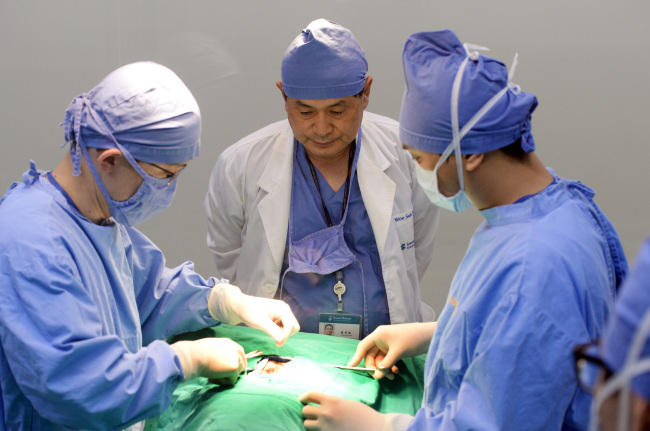Hwang Woo-suk in fresh controversy over mammoth cloning
By Korea HeraldPublished : July 15, 2015 - 11:50
Disgraced South Korean researcher Hwang Woo-suk is in a legal battle over the rights to a technique critical to his attempts to clone mammoths, it was revealed Wednesday.

According to reports, Hwang filed a criminal complaint accusing prominent researchers including Park Se-pil of Jeju National University, accusing them of embezzlement and attempted blackmail in June.
Other researchers involved in the case are Chung Hyung-min of Konkuk University and Kim Eun-young of Mirae Cell Bio.
In 2012 Hwang began working with Russian researchers to clone mammoths from cells recovered in Sahka Republic in eastern Russia.
The plan is to extract the nucleus -– the part that contains genetic materials –- from replicated mammoth cells. The mammoth nucleus would then be inserted into eggs from elephants –- the mammoth’s closest living relatives –- from which all genetic materials have been removed.
For the cloning process to begin, however, the mammoth cells retrieved from preserved carcass found in Russia first need to be replicated in the lab.
Although Hwang had attempted to cultivate mammoth cells in collaboration with Russian researchers for some time, they had failed to produce results.
Following years of failure, Hwang recruited the help of Park earlier this year, and his team was able to induce cell differentiation from the samples Hwang provided.
While Park’s work opened up the way for mammoth cloning, Hwang claims that Park’s results are part of his own research and that he has sole rights over all related experimental methods.
Hwang bases his claims on the fact that he provided the mammoth cells Park worked with.
Park, however, argues that Hwang provided the cells without any conditions, and as his team’s cell cultivation method was critical in achieving the results, the research should be considered a collaborative effort.
After failing to settle the dispute, Hwang filed a legal complaint accusing Park and his colleagues.
The prosecution has so far finished questioning Hwang. Kim and Chung have also been questioned, and the prosecution plans to interview Park in the near future.
Hwang was once a leading researcher who rose to fame in animal cloning. However, in attempting to apply his animal cloning techniques to human embryos, Hwang used doctored results that eventually led to his downfall.
In the paper published in 2005, Hwang claimed that he had cloned a number of human embryos, but it was later found that his results were fabricated.
By Choi He-suk (cheesuk@heraldcorp.com)
-
Articles by Korea Herald


![[Exclusive] Korean military set to ban iPhones over 'security' concerns](http://res.heraldm.com/phpwas/restmb_idxmake.php?idx=644&simg=/content/image/2024/04/23/20240423050599_0.jpg&u=20240423183955)

![[Graphic News] 77% of young Koreans still financially dependent](http://res.heraldm.com/phpwas/restmb_idxmake.php?idx=644&simg=/content/image/2024/04/22/20240422050762_0.gif&u=)



![[Pressure points] Leggings in public: Fashion statement or social faux pas?](http://res.heraldm.com/phpwas/restmb_idxmake.php?idx=644&simg=/content/image/2024/04/23/20240423050669_0.jpg&u=)










